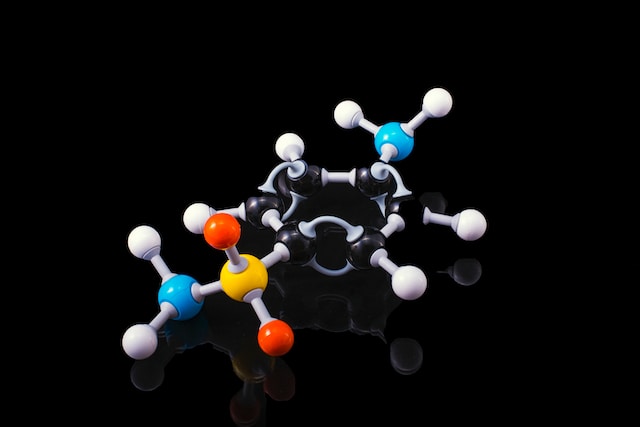Industrial engines are employed for essential jobs that are demanding and challenging and require a lot of engine and physical power. If these engines were to break down, then essential tasks in various fields would have to be stopped for the time being, resulting in a significant loss of time, effort, and investment. Furthermore, engine repair tends to be costly.
This is why it is essential to maintain industrial engines effectively to prevent equipment failures. But before you learn the best and easiest tips for maintaining an industrial engine, make sure you are aware of all the safety precautions you must take around engines.
Perform Regular Oil Changes on Industrial Engines
Your engine must be the epitome of cleanliness, coolness, and lubrication. Regularly changing the oil of your industrial engines ensures this.
When you replace your engine’s oil, it is recommended that you use newer oils because older ones tend to degrade over time and become less effective. Moreover, you must make sure to use good quality oil and a type that is appropriate for your engine. Poor quality oil may stimulate corrosion and damage in the engine and allow dirt and other unwanted substances to circulate in the engine and deposit, which will cause wear.
Furthermore, to maximize the effectiveness of oil changes, carry them out at equal intervals. However, how often you carry out the oil change depends on what is specified in your manual guide- usually, if your engine is performing heavy-duty tasks under harsh conditions, it will require an oil change more frequently.
You should read the manufacturer’s instructions guide for your engine to learn about the various oil requirements for your respective industrial engine.
Maintain the Engine’s Coolant
The engine’s coolant prevents it from overheating and breaking down. An engine that overheats is more likely to undergo irreplaceable damage, and coolant is the best way to avoid this. Therefore, always ensure your engine has enough coolant circulating through it—always check to ensure the coolant is at the recommended level.
Furthermore, suppose the coolant is not flushed and replaced at the correct times. In that case, its quality may also degrade over time, becoming more acidic and damaging other cooling system parts. Therefore, you must also monitor the acidity levels of your coolant and follow the instructions in the manufacturer’s guide when needed.
Clean Out Your Engine’s Filter
Your engine is vulnerable to being harmed by substances like dirt, dust, and debris. A filter traps all these unwanted substances, preventing them from entering the engine and causing costly damage.
However, filters tend to get clogged and become less effective over time. It is essential to check and replace them regularly so that your engine remains under the most secure protection. The harsher the climate and environment in which the engine is performing, the more significant the wear and tear on the filters; hence, they will need to be changed more frequently.
Inspect Your Engine’s Belts
Your engine’s belts ensure that various engine functions, including the fan and alternator, are carried out seamlessly. The rubber belts are one of the components of engines that tend to have a longer life span. However, there comes a time when those also tend to face wear and tear.
Because these belts carry out essential functions, if they get damaged or snap while the engine is running, it may result in severe internal engine damage. Therefore, watch out for any cracks or tears in the belt, and replace it when you notice the belt bearing some damage.
Another essential trick is to keep your ears attentive for any squealing sounds from the belt. Such sounds indicate that the belt is undergoing wear and tear and requires replacement.
Monitor Your Engine’s Fuel Levels
Gasoline and diesel tend to create water and contaminants that get sucked down into the tank and end up at the bottom. Over time, much of this sediment accumulates at the bottom of the tank.
This is why you must always run your engine when the fuel tank is filled, and it is best if it is filled more than halfway. This is because if you run your engine on a near-empty fuel tank, the engine’s fuel is heavily infected with debris and contaminants. Because of this, the filter will need to work overtime to filter out the debris and will face a shorter life span due to being clogged more frequently. Moreover, if any of this debris reaches vital parts of the engine, it may cause damage.
Carry Out Routine Water Drainage
Excessive water in the fuel tends to cause a range of adverse issues because it leads to build-up in the fuel tank and may damage the fuel injectors, which play a vital role in atomizing and sending fuel to the internal combustion engine.
Therefore, it is recommended that you drain the water from your fuel tank frequently using a simple procedure outlined in your engine’s user manual. One trick to identify water in the fuel is to check if the fuel appears hazy or cloudy. If so, you must immediately drain the water from your fuel tank.
Choose Genuine Replacement Parts for Your Engine
If a close engine inspection reveals a damaged engine part, it is recommended that you get an OEM-approved alternative or spare part. These genuine engine parts are created and designed to withstand high fuel flow and pressure levels. Moreover, these parts undergo in-depth and extensive test checks to ensure they meet standards and effectively fulfill the requirements. An example of trusted genuine spare and engine parts is the waukesha engine parts.
It is essential to avoid getting replica or counterfeit parts for your engine because they only give the illusion of carrying out the required function but do not do so effectively. One such example may be unauthorized or reverse-engineered fuel filters, which may seem to be working but do not meet the quality standards required to trap all the debris and dust that an engine may be faced with if it is operating under harsh conditions. These fuel filters may degrade or break down very quickly, resulting in serious damage to the engine.
Conclusion
Industrial machinery and engines require routine maintenance to extend their life span and work effectively. Therefore, it is essential that operators of industrial engines are equipped with the knowledge and skills needed to maintain an engine and avoid hefty repair costs.
Moreover, workers in any industry, such as the construction industry, must be aware of the type of technology and machinery being employed so that they can adapt to various safety standards and equip themselves with the appropriate maintenance skills.







